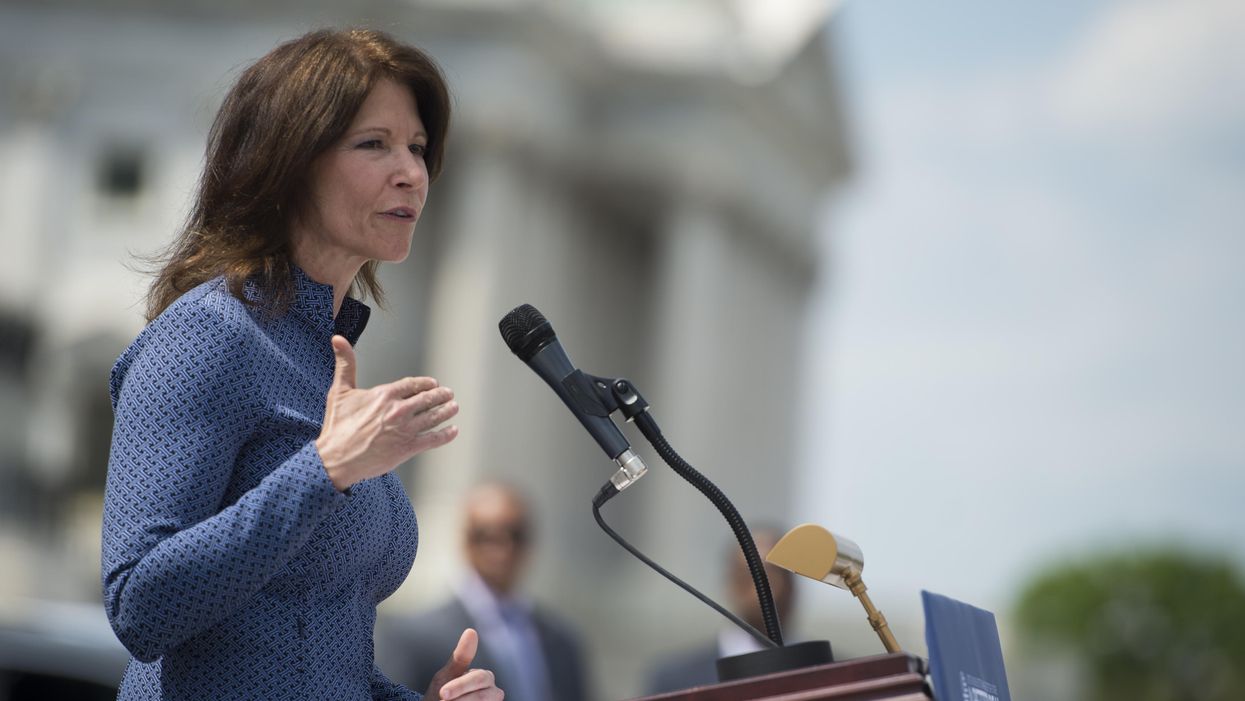Fitch is the president and CEO of the Congressional Management Foundation and a former congressional staffer.
Most Americans are not familiar with or need the specific services of a member of Congress. While the term "caseworker" is well known in congressional offices, it's mostly unknown to constituents – until they really need the help. The pandemic pushed the constituent services demands on Congress to new levels, and the Congressional Management Foundation tracked some amazing examples as part of our 2021 Democracy Awards announced this week.
The CMF Democracy Award in Constituent Service seeks offices that demonstrate excellence through specific practices that are thoroughly rooted in the office's values and incorporated into the office's work, including specific, methodical and consistent processes for achieving measurable results in constituent service. Some examples include: impressive mail quality and efficient turnaround times, effectiveness acting as ombudsman for constituents with federal agencies, and online, social media, and/or in-person and/or telephone town hall meetings geared toward assisting constituents.
The two winning congressional offices for 2021 are led by Rep. Don Bacon, a Nebraska Republican, and Rep. Cheri Bustos, an Illinois Democrat. Their work offers examples for other offices to follow and demonstrates to their constituents the value of high-quality service.
Spotlight: Bacon's office begins each year crafting a strategic plan for exceptional constituent service through a culture of teamwork, compassion, community collaboration and servant leadership. Training programs for new staff and interns include an extensive review of the strategic plan and all expectations, policies and procedures. A vital expectation among staff is that the office will respond quickly to constituent requests, follow up and attempt to use every available resource to resolve their concerns.
In 2020, the Bacon office logged more than 54,714 interactions and opinions from constituents on a multitude of issue areas and topics of interest. The district staff worked more than 1,053 cases and requests for assistance and held six virtual telephone town hall meetings with an average attendance of 3,182 constituents. Three of those town halls were focused on Covid-19, featuring health experts to keep constituents updated including one to provide resources and relief to small businesses.
Read more about the Democracy Awards
Democracy Awards recognize eight members of Congress for public service
Honoring the best congressional offices
Furthermore, the Bacon office hosted and participated in live webinars on topics such as the Holocaust, sex trafficking, combatting sexual assault and recreational drone safety, in partnership with government agencies and civic leaders, organizations, victims, and experts. The webinars are recorded and made available to the public afterward via Bacon's YouTube page and social media.
Bacon is passionate about engaging young people in the democratic process, so he launched the Congressional Youth Advisory Academy as a nonpartisan youth program designed to educate students on how Congress operates and the process by which public policies are formed. The goal of the CYAA is to foster civic engagement and community service. This academy provides student members with the unique opportunity to participate in legislative simulations, community service events, lectures with community leaders and policy debates.
Spotlight: For Bustos' office, outstanding constituent service is more than a routine practice – it is a daily expectation. The constituent services staff have regularly scheduled team meetings to discuss issues and share best practices. The director of constituent services has an open dialogue with all casework staff and regularly speaks with them one-on-one to identify emerging needs or trends in casework.
Constituent services are highlighted and celebrated throughout the office, as the team is invited to share stories and lift up successful casework on their weekly all-staff call. This helps legislative staff identify and develop legislation in response to constituent concerns, and communications staff identify impactful stories to share with press and digital audiences. The office tracks success stories and even features them on its website, with consent, to encourage others to reach out for assistance.
For example, after meeting the widow of a fallen soldier, Bustos learned the young mother wanted to move back to Illinois to be near family while in mourning, but her landlord would not allow her to break her lease without costly cancellation fees. Bustos worked across the aisle to sponsor the Gold Star Families Leasing Act, which passed Congress and was signed into law. The legislation extends residential leasing protections to surviving spouses of service members killed in the line of duty.
Additionally, after hosting a series of economic round tables and learning that many small towns were losing critical services based on the retirement of small-business owners with no succession plan, Bustos authored the bipartisan Small Business Succession Planning Act to provide resources to local owners and incentivize succession planning. Similarly, when the agricultural community voiced concerns about climate change and economic development, the office created the Rural Green Partnership, a legislative framework that includes rural America as a partner for addressing climate change and enhancing economic development opportunities in the region.
During the 116th Congress, the office recovered nearly $1,000,000 for constituents, opened 1,786 cases to assist constituents with federal agencies, hosted 177 constituent meetings/calls, held held telephone town halls, and hosted 29 large teleconferences/webinars to connect constituents and stakeholders with disaster resources.
Over the past year, CMF has collected stories like these that saw members of Congress making tremendous and positive differences in the lives of their constituents during the pandemic. While many Americans continue to be cynical about Congress, the winners of the CMF Democracy Awards continue to demonstrate that their elected officials can be responsive to the needs of their constituents at a time when it matters most.





















